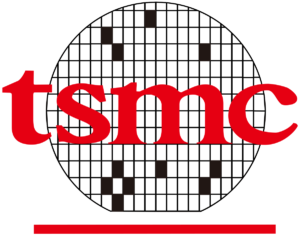How The U.S. War On Taiwanese Semiconductors Might Benefit Japan
No Comments yet On May 15, 2023, Berkshire Hathaway reported in a Form 13F filing to the U.S. Securities and Exchange Commission that it had completed the sale of its $4 billion stake in Taiwan Semiconductor Manufacturing Co (TSMC). This sale completed a process that began in February 2023, when Berkshire Hathaway announced that it sold 86 percent of its holdings in TSMC. In April, Berkshire Hathaway’s leader Warren Buffett told Nikkei that the geopolitical tension between the United States and China was “certainly a consideration” in his decision to divest from TSMC. TSMC told Nikkei, is a “well-managed company” but that Berkshire Hathaway would find other places for its capital. At his May 6 morning meeting, Buffett said that TSMC “is one of the best-managed companies and important companies in the world, and you’ll be able to say the same thing five, ten or twenty years from now. I don’t like its location and reevaluated that.” By “location,” Buffett meant Taiwan, in the context of the threats made by the United States against China. He decided to wind down his investment in TSMC “in the light of certain things that were going on.” Buffett announced that he would move some of this capital towards the building of a fledgling U.S. domestic semiconductor industry.
On May 15, 2023, Berkshire Hathaway reported in a Form 13F filing to the U.S. Securities and Exchange Commission that it had completed the sale of its $4 billion stake in Taiwan Semiconductor Manufacturing Co (TSMC). This sale completed a process that began in February 2023, when Berkshire Hathaway announced that it sold 86 percent of its holdings in TSMC. In April, Berkshire Hathaway’s leader Warren Buffett told Nikkei that the geopolitical tension between the United States and China was “certainly a consideration” in his decision to divest from TSMC. TSMC told Nikkei, is a “well-managed company” but that Berkshire Hathaway would find other places for its capital. At his May 6 morning meeting, Buffett said that TSMC “is one of the best-managed companies and important companies in the world, and you’ll be able to say the same thing five, ten or twenty years from now. I don’t like its location and reevaluated that.” By “location,” Buffett meant Taiwan, in the context of the threats made by the United States against China. He decided to wind down his investment in TSMC “in the light of certain things that were going on.” Buffett announced that he would move some of this capital towards the building of a fledgling U.S. domestic semiconductor industry.
TSMC, based in Hsinchu, Taiwan,, is the world’s largest semiconductor manufacturer. In 2022, it accounted for 56 percent of the share of the global market and over 90 percent of advanced chip manufacturing. Warren Buffett’s investment in TSMC was based on the Taiwanese company’s immense grip on the world semiconductor market. In August 2022, U.S. President Biden signed the CHIPS and Science Act into law, which will provide $280 billion to fund semiconductor manufacturing inside the United States. On December 6, 2022, Biden joined TSMC’s Chairman Dr. Mark Liu at the $40 billion expansion of TSMC’s semiconductor factories in North Phoenix, Arizona. Dr. Liu said at the project’s announcement that the second TSMC factory is “a testimony that TSMC is also taking a giant step forward to help build a vibrant semiconductor ecosystem in the United States.”
The first TSMC plant will open in 2024 and the second, which was announced in December, will open in 2026. On February 22, 2023, the New York Times ran a long article (“Inside Taiwanese Chip Giant, a U.S. Expansion Stokes Tensions”), which pointed out—based on interviews with TSMC employees—that “high costs and managerial challenges” show “how difficult it is to transplant one of the most complicated manufacturing processes known to man halfway across the world.” At the December 6 announcement, Biden said, “American manufacturing is back,” but it is only back at a much higher cost (the plant’s construction cost is ten times more than it would have cost in Taiwan). “The most difficult thing about wafer manufacturing is not technology,” Wayne Chiu—an engineer who left TSMC in 2022—told the New York Times. “The most difficult thing is personnel management. Americans are the worst at this because Americans are the most difficult to manage.”
Blow up Taiwan
U.S. Ambassador Robert O’Brien, the former National Security Advisor of Donald Trump, told Steve Clemons, an editor at Semafor, at the Global Security Forum in Doha, Qatar, on March 13, 2023, “The United States and its allies are never going to let those [semiconductor] factories fall into Chinese hands.” China, O’Brien said, could build “the new OPEC of silicon chips” and thereby, “control the world economy.” The United States will prevent this possibility, he said, even if it means a military strike. On May 2, 2023, at a Milken Institute event, U.S. Congressman Seth Moulton said that if Chinese forces move into Taiwan, “we will blow up TSMC. … Of course, the Taiwanese really don’t like this idea.”
These outlandish statements by O’Brien and Moulton have a basis in a widely circulated paper from the U.S. Army War College, published in November 2021, by Jared M. McKinney and Peter Harris (“Broken Nest: Deterring China from Invading Taiwan”). “The United States and Taiwan should lay plans for a targeted scorched-earth strategy that would render Taiwan not just unattractive if ever seized by force, but positively costly to maintain. This could be done effectively by threatening to destroy facilities belonging to the Taiwan Semiconductor Manufacturing Company,” they write.
Right after Moulton made these incendiary remarks, former U.S. defense undersecretary Michèle Flournoy said that it was a “terrible idea” and that such an attack would have a “$2 trillion impact on the global economy within the first year and you put manufacturing around the world at a standstill.”
Taiwan’s officials responded swiftly to Moulton, with minister of defense Chiu Kuo-cheng asking, “How can our national army tolerate this situation if he says he wants to bomb this or that?” While Chiu responded to Moulton’s statement about a military strike on TSMC, in fact, the U.S. government has already attacked the ability of this Taiwanese company to remain in Taiwan.
Taiwan’s economics vice minister Lin Chuan-neng said in response to these threats and Buffett’s sale of TSMC that his government “will do its utmost to let the world know that Taiwan is stable and safe.” These incendiary remarks aimed at China now threaten the collapse of Taiwan’s economy.
Made in Japan
In his May 6 meeting, Warren Buffett said something that gives a clue about where the semiconductor manufacturing might be diverted. “I feel better about the capital that we’ve got deployed in Japan than Taiwan,” he said. In 1988, 51 percent of the world’s semiconductors were made in Japan, but as of 2022, the number is merely 9 percent. In June 2022, Japan’s Ministry of Economy, Trade, and Industry (METI) announced it would put in 40 percent of a planned $8.6 billion for a semiconductor manufacturing plant by TSMC in Kumamoto. METI said in November that it has selected the Rapidus Corporation—which includes a stake by NTT, SoftBank, Sony, and Toyota—to manufacture next-generation 2-nanometer chips. It is likely that Berkshire Hathaway will invest in this new business.
Author Bio:
This article was produced by Globetrotter
Vijay Prashad is an Indian historian, editor, and journalist. He is a writing fellow and chief correspondent at Globetrotter. He is an editor of LeftWord Books and the director of Tricontinental: Institute for Social Research. He is a senior non-resident fellow at Chongyang Institute for Financial Studies, Renmin University of China. He has written more than 20 books, including The Darker Nations and The Poorer Nations. His latest books are Struggle Makes Us Human: Learning from Movements for Socialism and (with Noam Chomsky) The Withdrawal: Iraq, Libya, Afghanistan, and the Fragility of U.S. Power.
Source: Globetrotter
You May Also Like
Comments
Leave a Reply







